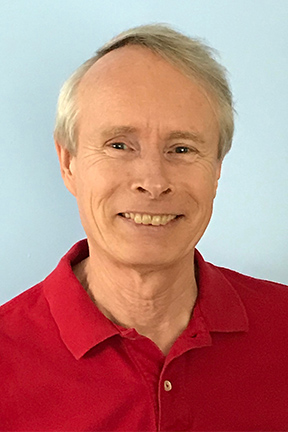Candidate Statement: Stephen C. Unwin
Nominated Office: Vice-President
Affiliation: Jet Propulsion Laboratory, California Institute of Technology
Position/title: Principal Scientist
PhD institution: Cambridge University (1980)
Areas of scientific interest:
- Extrasolar planets and stellar debris disks
- Space-based instrumentation and mission development for astronomy
- Science policy
AAS positions & dates:
- AAS Council (2014-2017)
- AAS Task Force on Meetings (Chair 2015-2016)
- Committee on Astronomy and Public Policy (CAPP) (2015-2017)
- Division on Dynamical Astronomy (DDA) Committee (2000-2002 and 2006-2007) (Chair 2006-2007)
- DDA Brouwer Award Selection Committee (Chair 2010)
- Division member of DDA and DPS
- AAS Agent (2016-present)
Other relevant positions and experience:
- Member of US National Committee of the IAU (2016-2019)
- NASA Exoplanet Exploration Program, Deputy Program Scientist (2005-2015)
- JPL Center for Exoplanet Science, Deputy Director (2005-2011)
- NASA proposal review panels (1994, 1998-1999, 2011-2017)
- NASA Keck Time Allocation Committee (2013)
- NSF Management Review Committee of Arecibo Observatory (2007)
- NSF proposal reviewer (2000-2005)
- NASA Space Interferometry Mission, Deputy Project Scientist (2000-2010)
- Arecibo Users Committee (2000-2003, Chair 2003)
- NRAO Users Committee (1992-1995, Chair 1995)
Candidate Statement: I am honored to be a candidate for Vice President. I want to help the AAS with many challenges that it faces. Astronomers should be able to look to the AAS as the public face our profession. The AAS serves a vital role in addressing issues that affect astronomy, but which are hard to influence when we act only as individuals. The national environment is continually changing and it is essential for the AAS to adapt and remain effective when faced with national policies that impact the field over the long term.
Effective two-way communication -- keeping members informed, and listening to and reflecting the interests of members -- is central to the future of the AAS. How should the AAS communicate with, and listen to, its membership in the age of social media and instant reaction to events? How to make our winter and summer meetings more valuable to members? How best to support and serve the disciplines within our Society (HEAD, DPS, etc.)? What is the right balance, for agencies like NSF and NASA, between support for current research vs. investment in future instrumentation and missions? The (low) section rates for proposals trace directly to this question.
A specific task of AAS vice presidents is to plan the annual winter and summer meetings. As VP, I will work hard to meet the expectations for attendees: sharing our research, learning about new fields through exciting invited talks, networking for new science collaborations, career advice, professional development, etc. While on the AAS Council I chaired a Task Force to identify how to improve the meetings. We reached out with a large survey to the membership, asking about cost, location, meeting size, agenda planning, invited talks, side meetings, etc. AAS staff are using the Report as guidance in meeting planning. I will continue to reach out, in the VP role, to members as we plan scientific programs for the meetings.
How can we enhance the roles of our interest groups and committees (CSWA, CSMA, SGMA, Accessibility and Disability, Employment, etc.)? How and when to take a public stand on issues of national importance that have a direct impact on the profession? Social issues have risen to the forefront in the last few years, and have serious impacts on astronomers as individuals. The AAS can do more to foster opportunities for rewarding astronomy careers, especially in non-academic organizations. Serving on the Council provided me with exposure and insight into these questions, and it was rewarding to be able to engage in tackling them; as VP, I would continue those efforts.
Astronomy is a vibrant and exciting profession and the AAS plays a vital role in sharing our excitement with the public, and using the intrinsic appeal of astronomy to motivate young people to pursue science. I enthusiastically support the AAS and its mission and I would be proud to serve as VP.


